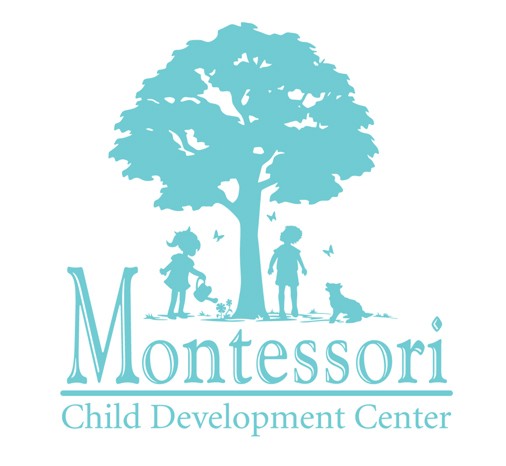ELEMENTARY CURRICULUM
In the Montessori elementary program, there are five "great stories" or "great lessons" around which much of the rest of the curriculum is arranged. These are the Story of the Universe; the Story of Life; the Story of Humans; the Story of Math; the Story of Language. The first three are the main chapters in the all-encompassing "Epic of Evolution" which tells the story of our origin and our past, while the last two are illustrations of human cultural accomplishments and the evolution of human ideas. These embody, what Dr. Montessori refers to as, Cosmic Education.
THE STORY OF THE UNIVERSE, THE STARS, THE SOLAR SYSTEM, AND THE EARTH
- Creation of the Universe
- Nature of Elements
- Stellar Nucleosynthesis
- The Story of the Earth
- Clock of Eras (story and study)
- Sun and Earth Study
- Composition of the Earth
- Work of Air and Water
- Astronomy: solar system, stars, galaxies, comets, constellations
- Meteorology: wind, currents, weather, fronts, erosion, water cycle, clouds, glaciers
- Chemistry: states of matter, changes, mixtures, reactions, elements, atoms, periodic table, compounds, molecules, chemical formulas, equations, lab work, experimentation
- Physics: magnetism, electricity, gravity, energy, light, sound, heat, friction, motion, experimentation
- Geology: types of rocks, minerals, land forms, volcanoes, earthquakes, plate tectonics, ice ages, eras of the earth
- Geography: maps, globes, latitude/longitude, climates, land/water form names, continent and country research
THE STORY OF LIFE
- Biology
- Timeline of Life (story and study)
- Biology: cells, organized groups, five kingdoms, specimens, dissection, observation, use of microscope
- Botany: study of plants, classification, functions, parts of plants (seed, fruit, leaf, stem, root, flower), types of plants
- Habitats: location, characteristics, food chains/webs, symbiosis, adaptation, ecosystems, conservation
- Ancient Life: eras of the earth, evolution, extinction, fossil records, excavation
- Animals: classification, needs, similarities/differences, human systems, nutrition, hygiene
- Monera, Protista, and Fungi Kingdoms: what they are, classification, observation
- Timeline of Early Humans (story and study)
- Timeline of Modern Humans (story and study)
- The Story of Humans
- Archeology
- Timeline of Man: Early Humans and Modern Man (story and study)
- Fundamental Human Needs
THE STORY OF CIVILIZATIONS
- Ancient Civilizations of China/India/ Mesopotamia/Egypt/ Africa/ Greece/ Rome/ Maya/ Inca
- History: timelines, prehistory, ancient civilizations, world history, history of specific countries and continents
- Culture: art, artists, music, composers, dance, drama, architecture, design, philosophy, religion, grace and courtesy
- Social Studies: current events, government, economics, commerce, volunteering & charity
- Discovery & Invention: scientists, inventors, scientific method, inventions, simple machines
THE STORY OF A NATION
- American History
- First Americans/European Colonies/ Revolution/ Westward Expansion/ Civil War/ 20th Century
- Great Rivers
STORY OF MATHEMATICS
History of Numbers
- Mathematics: operations, fractions, decimals, multiples, squares, cubes, percentages, ratio, probability, intro to algebra
- Numbers: origins of numbers and systems, bases, types of numbers, scientific notation, mathematicians
- Geometry: congruency, similarity, nomenclature of lines, angles, shapes, solids, measurement, theorems
- Application: story problems, measurement, estimation, graphs, patterning, rounding, money concepts
THE STORY OF LANGUAGE
History of Language
- Reading: literature, poetry, non-fiction, myths and folk tales, authors, reading comprehension, reading analysis, literary terms
- Writing: elements of style, function, voice, composition, letter writing, research, study skills
- Language: origins of spoken language, foreign languages, history of languages, speech, drama
- Structure: alphabets, bookmaking, grammar, punctuation, sentence analysis, word study, figures of speech
These are part of the Story of Civilizations
ELEMENTARY PRACTICAL LIFE
Care of the class environment Planning events and field trips Conflict resolution and problem-solving skills Computers and the elementary child
ART
Artistic Perception, Appreciation, Creative Expression, Historical Context, Application
- Art History
- Study of the Masters and Contemporary Artists
- Develop the skills of using perspective, two- and three-dimensional art
- Color and Design
- Supporting the cultural curriculum with art
MUSIC
- Rhythmic patterns and musical notation
- Music history and appreciation
- Composers
- Musical performances
MOVEMENT
- Cooperative games
- Basic sport skills

